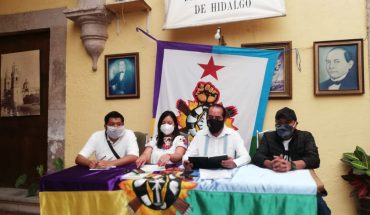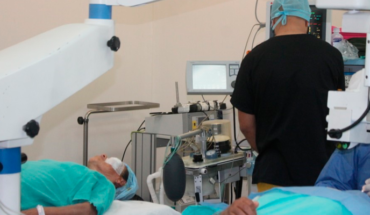metabolic diseases are diseases qu e they are transmitted from parents to children, they are inherited and rare. No one knows who is a carrier of the disease, that rare diseases are also called. So they appear it is necessary that both parents are healthy carriers.
It is important to differentiate the metabolic diseases, because usually when we speak of them thinking of diabetes or hypertension metabolic diseases that are, but have a very late onset in life unlike diseases metabolic hereditary 70% debuts in the neonatal period or the first months of life.
When someone has a hereditary metabolic disease, what is happening is an inborn error or an error in the genetic transmission and that makes the body of the child do not degrade everything that is eating and begins to build one or several substances that will be toxic and which will damage irreparably his body. This toxic substance to accumulate in time, will cause damage at the level of the brain causing permanent disability, can also damage the liver or kidney or other organs.
To measure this toxic substance in the blood – before which cause irreparable damage-, created neonatal screening programs, allowing you to take a blood sample to all the newborns in the country since the two days of life and find a child who has this their tance on the normal value. Once detected the child having this toxic substance, is given proper treatment with what is achieved to reverse in the vast majority of diseases and all the consequences that will manifest themselves later.
In Chile the program of neonatal screening that began in 1992, includes only two pathologies the PKU or phenylketonuria, which is a hereditary metabolic disease and congenital hypothyroidism. And in the rest of the world with the same shows this neonatal test blood, pesquisan 32 diseases at once.
Verónica Cornejo, Professor and head of laboratory of genetics and metabolic diseases of INTA pointed out that “Chile began with the prevention of mental retardation produced by the phenylketonuria 27 years ago, we were one of the pioneers in Latin America countries, but in the” Today we are left behind, since countries such as Uruguay and Costa Rica, made the diagnosis of more than 26 pathologies in which the Neurosciences alterations can be prevented. I think that to move forward in prevention of intellectual disabilities, take the decision to extend the programme of the Ministry of health to a greater number of diseases and this is a public policy decision.”
“I think that the economic resources are and I can say that the higher cost of the programme will be the implementation of the laboratory that perform the examinations. Later costs will be lower, because it has been shown that the greater the number of people tested lower will be the cost of the neonatal screening program”, added.
Since a few years ago United States approved a panel of neonatal diagnosis that includes 32 diseases metabolic, endocrine and genetic, of which add variants forms, this number is increased to 57 preventable conditions from the period, by So what we want to implement in Chile as it has been tested extensively, there is scientific evidence that shows high effectiveness that neonatal screening programs have prevention.
translated from Spanish: Metabolic diseases: what are they and how manifest?
December 3, 2018 |





